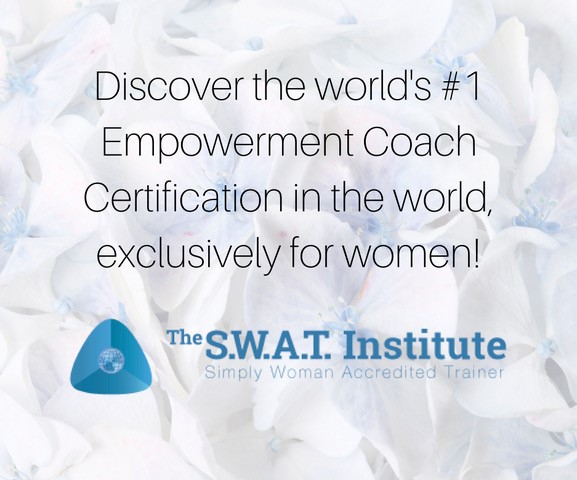- Mothering in a Fractured TimePosted 3 days ago
- Beneath the Surface: Revealing Life’s Goals nurtured from a Spiritual SeedPosted 6 days ago
- How We Kept Marital Peace while Traveling the World with Our KidsPosted 2 weeks ago
- How I Coped with Feeling Lost in a Changing SocietyPosted 2 weeks ago
- The Unexpected Liberation of a Butt DialPosted 2 months ago
- Why is France making abortion a constitutional right?Posted 2 months ago
How to Protect Heart, Bone, and Immune Health

By Lisa Roth Collins, RHN | Naturallysavvy.com
Do you ever wish there was a convenient way to protect your heart, bone, and immune health? The truth is, it’s a multifaceted task that includes attention to diet, exercise, stress management, sleep, and supplementation. We would like to talk about the latter and the nutrient combinations that can help you achieve significant health benefits.
Inflammation and health
It seems you can’t talk about health today without diving into the topic of inflammation. That’s because inflammation is intimately involved in so many of our health challenges today, ranging from asthma and Alzheimer’s disease to heart disease, diabetes, obesity, and cancer, among others. According to Dr. James LaValle, a clinical pharmacist and board-certified clinical nutritionist, one type of inflammation we need to pay attention to is called metaflammation, aka metabolic inflammation. This condition is defined as “metabolism induced (high fat or fructose-based diet or excessive calorie intake) chronic inflammation.”
Are you affected by metaflammation? The answer is likely yes if you eat inflammatory foods, don’t manage stress, and aren’t getting sufficient restful sleep every night. LaValle notes that metaflammation leads to inflam-aging, which means that chronic exposure to these inflammatory factors throws your body into attempts to stop the inflammation. These attempts speed up aging and fuel disease and infections.
How to stop metaflammation
A number of natural nutrients and plant supplements can help fight inflammation throughout the body. Let’s explore the best options, beginning with aged garlic extract (AGE) and then add a few others until you have a safe and effective base from which to ward off metaflammation and protect your heart, bone, and immune health. Ideally, you can take a supplement that combines all of these important factors.
Aged Garlic Extract: AGE has been clinically studied and has shown the ability to reduce four factors that are critical for fight inflammation: inflammatory cytokines, blood pressure, oxidized low-density lipoprotein cholesterol, coronary artery calcification, and vulnerable plaque.* This is the type of plaque that can break away from the blood vessel walls and cause a stroke or embolism. AGE also increases levels of adiponectin, a hormone that protects against insulin resistance. A suggested dose is 1,200 mg daily. It’s recommended you select a product that offers organic, odor-free aged garlic.
Read about aged garlic extract: AGE for a healthier you
Omega-3 fatty acids: Fish oil is a source of this nutrient, which helps lower homocysteine, triglycerides, and blood clotting.* Homocysteine is dangerous because an accumulation can damage your kidneys and brain. Omega-3s are best taken in a supplement unless you eat at least two meals per week of fish. Look for an omega-3 source that is ultra-pure and sustainable, such as those certified by Friend of the Sea.
Vitamins D3 and K2: Both of these fat-soluble vitamins are essential for promoting and maintaining bone density*. When you lose bone density, the calcium from your bones accumulates in your arteries. The use of vitamins D3 and K2 together helps ensure calcium is adequately absorbed by your bones. Be sure to get enough of both vitamins to reduce the risk of heart problems and bone loss (osteoporosis).*
Read about vitamin D and omega-3 supplements may reduce heart attack and cancer risk
Vitamin E: This potent antioxidant and anti-inflammatory supports immune system function.* It does this by neutralizing free radicals, which are molecules that break down healthy cells and also contribute to heart disease and aging.
Vitamins B6, B9, and B12: Pyridoxine, folate, and cobalamine (vitamins B6, 9, and 12) are also important players for heart, bone, and immune system health. In particular, all three B vitamins work together to help maintain a normal level of homocysteine in your blood.* High levels of this amino acid are associated with heart problems. Vitamin B6 alone plays a part in nearly 200 chemical processes and supports immune system function. Vitamin B12 may help promote bone health and supports the nervous system.*
Bottom line
For optimal heart, bone, and immune system health, there are a variety of nutrients that you should include in your daily routine. Fortunately, there is a supplement that brings all of these important factors together. Kyolic Omeg-AGE makes it convenient and easy for you to get all of these helpful ingredients in one product.
*The statements and information contained in this article have not been evaluated by the U.S. Food and Drug Administration. The products featured in this article are not intended to diagnose, treat, cure or prevent any disease.
Sources
DeGiacinto J. Benefits of vitamin E. Healthline 2021 Aug 18
Health benefits of vitamin B6. WebMD
Kanbay M et al. A journey from microenvironment to macroenvironment: the role of metaflammation and epigenetic changes in cardiorenal disease. Clinical Kidney Journal 2019 Dec; 12(6): 861-70
Kyo-Life. Podcast: Dr. LaValle joins Dr. Bob Martin on KTAR to discuss Kyolic Omeg-AGE
Mayo Clinic staff. Folate (folic acid). Mayo Clinic
Naini A et al. Effect of omega-3 fatty acids on blood pressure and serum lipids in continuous ambulatory peritoneal dialysis patients. Journal of Research in Pharmacy Practice 2015; 4(3): 135-41.
The top 5 supplements you should take daily. Wakunaga of America
Feature Slider Image by Owen Beard







